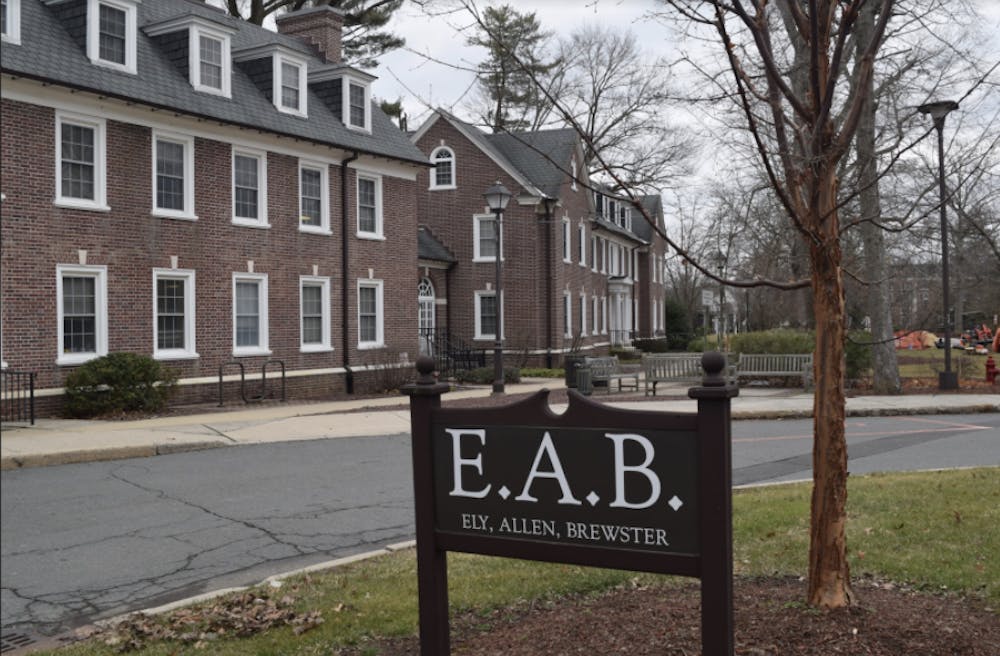By Rebekah Schroeder
Staff Writer
Shari Goldberg has been a Community Advisor (CA) for five semesters. A mathematics urban secondary education major, she has seen the residential staff at the College shift from their original duties to tasks that follow strict Covid-19 guidelines.
“I held a few socially-distanced gatherings at the start of the Spring 2021 semester where I ran a winter photoshoot and led a campus tour,” said Goldberg. “Additionally, I started a pen pal program in my building, where residents are able to write letters to each other.”
Regardless, she knows that the position is one that is essential to her personal sense of accomplishment.
“I am still happy to work as a CA — I cannot imagine my TCNJ experience without serving in this role,” Goldberg said.
Community Advisors are upperclassmen with leadership roles in line with their academic seniority, designated to supervise residential floors and the harbor the nurturing senses of an older sibling.

Whether their mission is to quell disputes and parties or enforce stricter coronavirus policies, the view from their eyes can be muddled by the sentiment that they squash all attempts at fun. But they, too, are students, and are the first line of defense in residential housing.
President Foster’s series of emails highlighting the College’s pandemic responses reached new heights at the end of February — her message discouraging gatherings and citing disbelief at the amount of on-campus cases. The rate had skyrocketed to 67 people over ten days of testing.
“I had hoped that one month into the semester we would have settled into a new normal where everyone was following the public health protocols that were put in place to ensure the wellbeing of our community,” Foster said. “Instead, we’ve seen sustained and frustrating non-compliance.”
The message was one of disappointment, but some students worried that the sentiment unfairly targeted those currently working to limit transmission, such as the CAs that have a lot of schoolwork on top of maintaining order within the housing facilities.
On March 12, Foster reported a successful decline and thanked the student community for doing their parts to curb the rising numbers. Now, over 14 days, there have only been 21 confirmed on-campus cases.
An important facet of the College’s fight against the pandemic, Community Advisors have been working since their intensive pre-semester training to effectively encourage communication, planning and the importance of abiding by social distancing orders.
As to not compromise the privacy of CAs, media interviews are kept to a minimum. A returning Community Advisor, who requested to remain anonymous, said that above the restrictions and safety protocols, their daily lives are not unlike those of average students.
“President Foster's warnings emphasized the duties of the student body, not the student staff,” the CA said. “We, as staff, can only stress the importance of health protocols and why they are in place and the students decide on whether to violate them or not.”
Despite returning CAs being “a little disheartened,” by some student’s choices to go against protocols, the job of an enforcer still has to be done.
“There is a mutual understanding that we are all taking this pandemic one step at a time,” said the anonymous CA.
Tina Tormey, the director of residential education, said that in addition to professional staff from the department, they currently have around 60 in-person CAs living on the floors.
“Most of the gatherings were happening outdoors and off campus, which our staff don't have oversight of. While CAs do policy enforcement, they aren't a substitute for students making good decisions and following the policies that were communicated multiple times before students came to campus,” she said. “A CA is a full time undergraduate student, has classes and co-curricular commitments and should only be working about 20 hours a week. They can't always be all things at all times.”
Community Advisors are continually supported by each other and the department when morale becomes affected.
Residential Education offers flexible expectations for their corresponding activities when the work in classes and pandemic complications pile up.
“Unfortunately, the CAs have had to do a lot of work related to policy enforcement — and that's probably the least-liked part of the job,” Tormey said. “However, our staff have been amazing and they've still crafted time for community events.”
Some of the successful events have been Netflix viewings, Jeopardy! games, photo scavenger hunts and arts and crafts nights.
“That is the fun part of being a CA — creating opportunities for your residents to experience joy and connection,” she said.
The anonymous CA talked about how their main motivations are the safety and health of students, rather than any desires to ruin the fun of their fellow students.
“We don't want to document you, it's more work for us! But it's part of our job, if we see it we have to do so,” the CA said.
Community Advisors encounter the same difficulties as everyone else with an online interface. It connects them to their peers, but communicative gaps are common with a mostly virtual setting.
“The virtual format is a double-edged sword, because things can be consolidated and efficient but also lost at the same time,” the anonymous source said.







